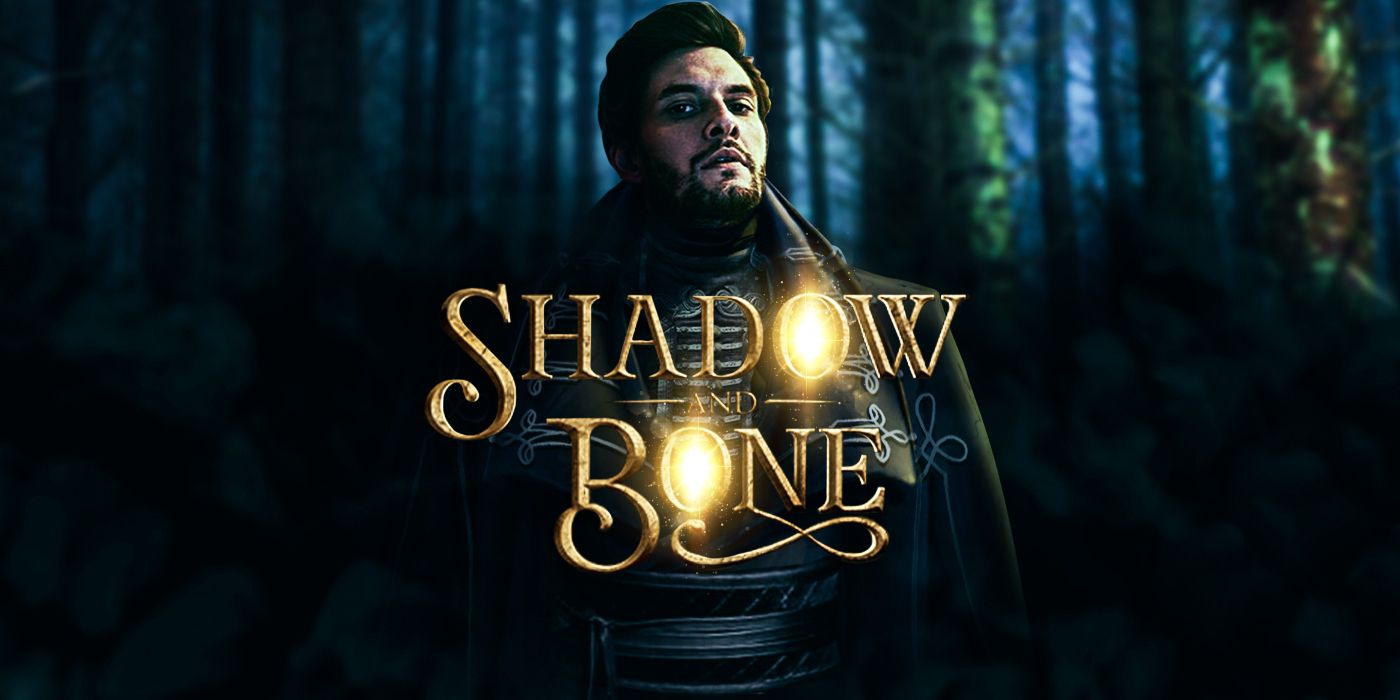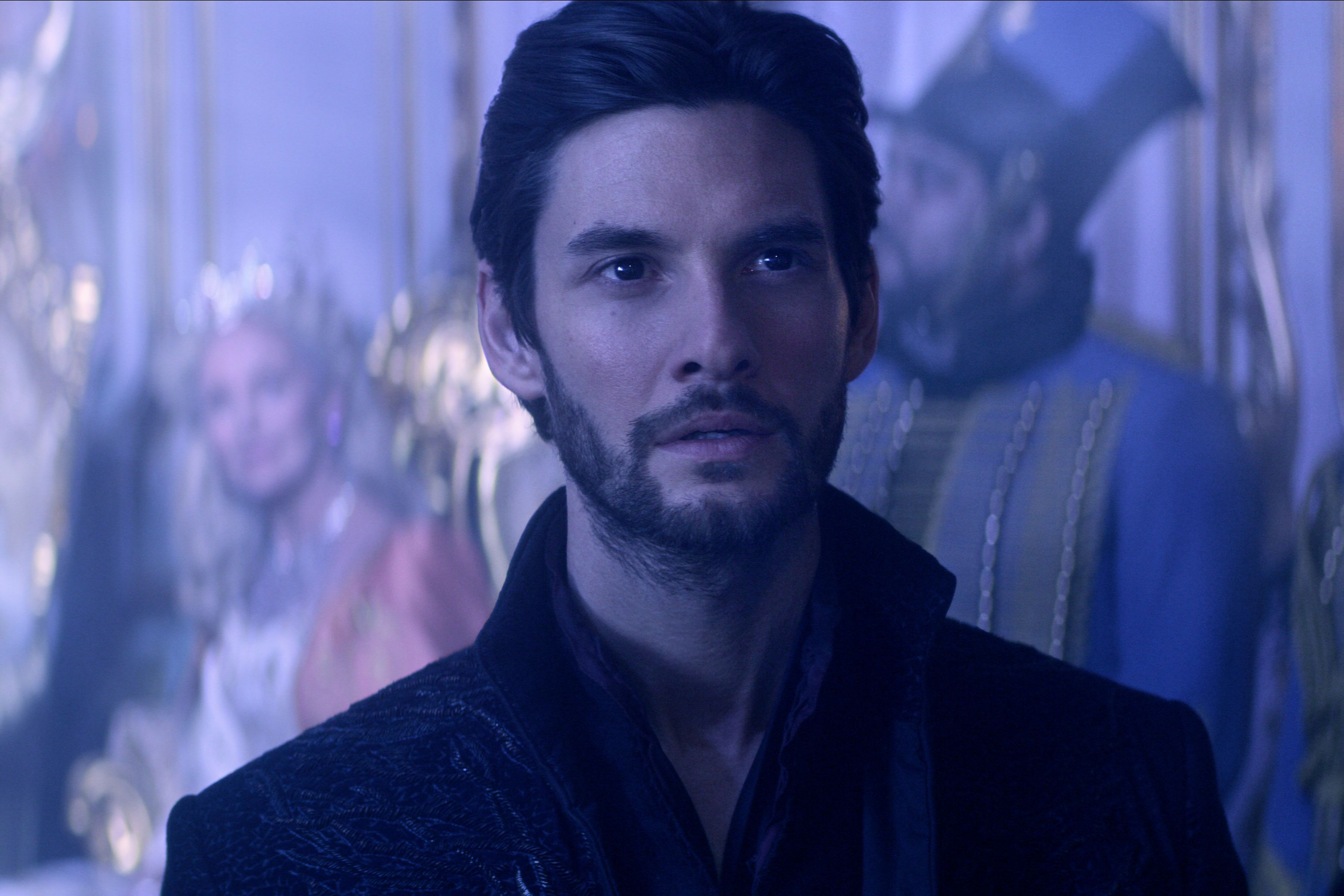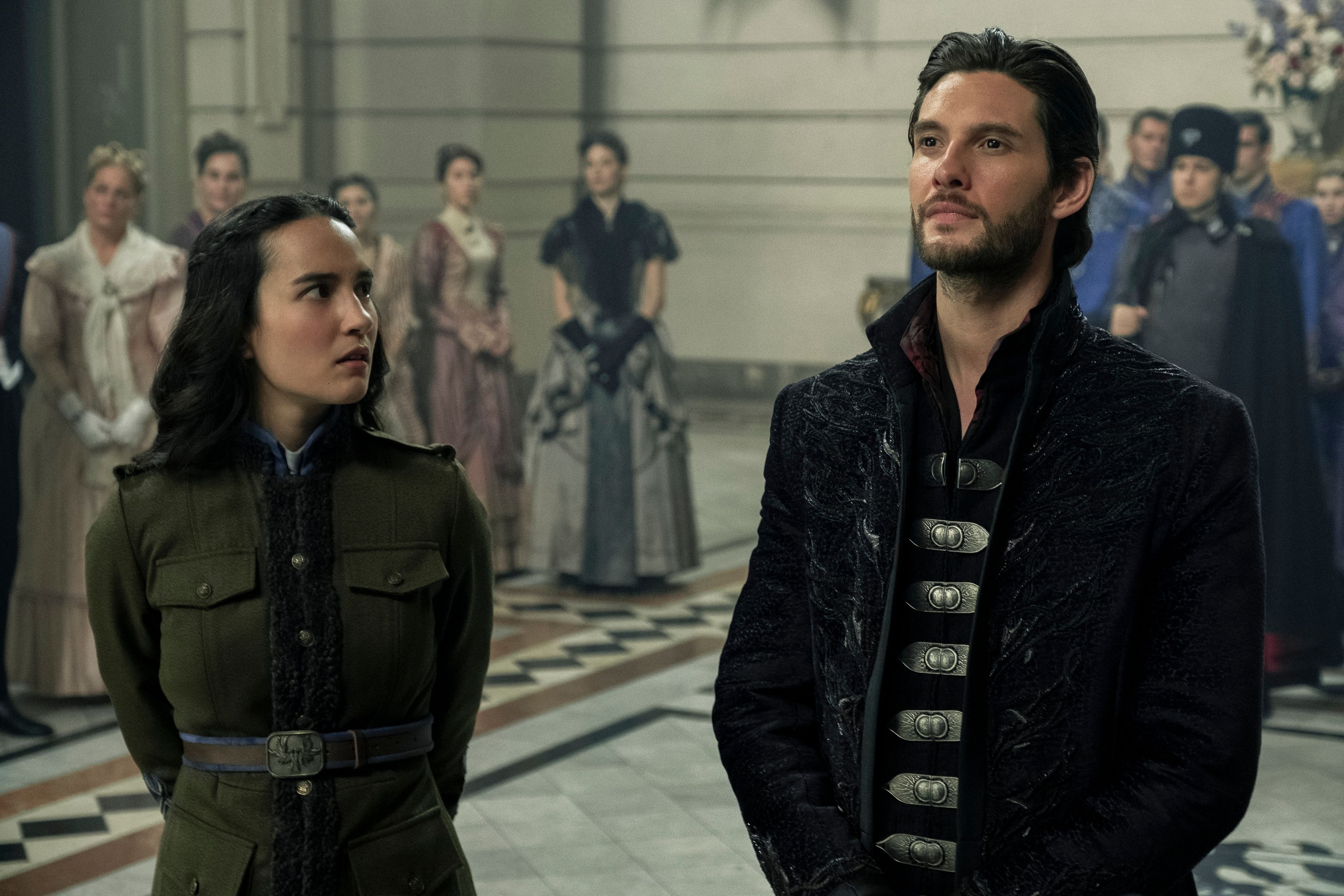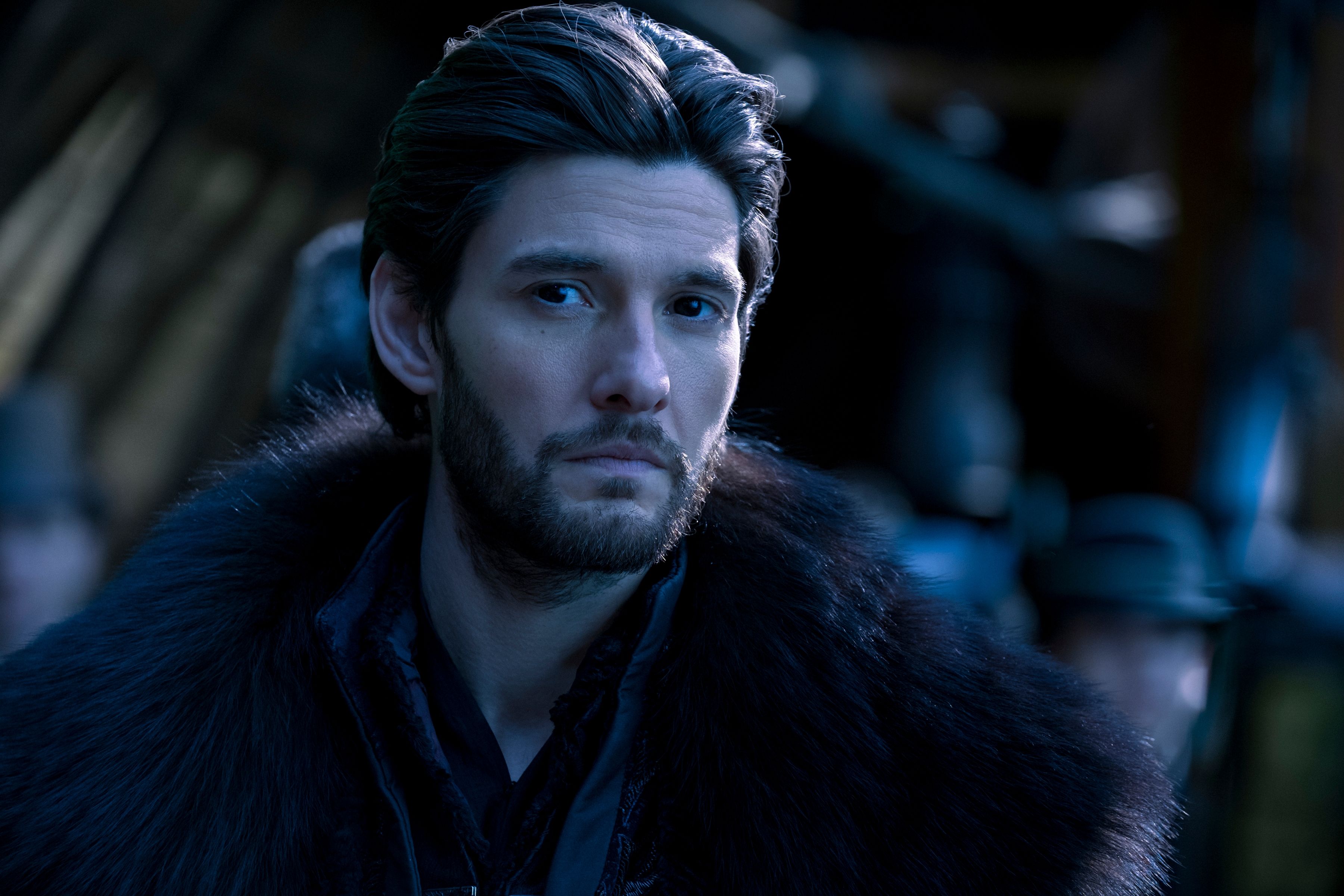[Editor's note: The following contains spoilers for Shadow and Bone Season 1.]
From showrunner Eric Heisserer (Arrival, Bird Box) and based on the worldwide best-selling Grishaverse novels from Leigh Bardugo, the Netflix original series Shadow and Bone is set in a war-torn world and follows orphan Alina Starkov (Jessie Mei Li), as she realizes just what extraordinary power she really possesses. As she struggles to understand and hone that power, General Kirigan (Ben Barnes) steps in, seemingly to protect her from the looming threat of the Shadow Fold, but clearly also with an agenda of his own.
During this 1-on-1 interview with Collider, Barnes talked about being drawn to complicated characters, connecting to the themes of the story, being powerful through fear, how he feels the end of the season would affects things moving forward, what he’d like to see in Season 2, and how different his real-life relationship with co-star Archie Renaux is compared to the one Kirigan has with Malyen “Mal” Oretsev.
Collider: You’ve been playing a string of very interesting, complicated, complex characters, and this one is certainly no exception.
BEN BARNES: He’s an ambiguous figure that exists in those gray shadows between the dark and the light, for sure. I don’t know why I’m drawn to complicated men. Because I spent so many years playing characters that are earnest protagonist characters, or what my friends would call boy with sword, trying to rescue the damsel and defeat the monster, there’s a shift, particularly for men in their mid-thirties, when you sink into knowing yourself a bit better or realizing that the world is how it is. I love films that are about hope, and I love shows that are about hope and identity, and about who we are and where we belong and what we’re doing here.
Even if you’re playing an antagonist figure or an antihero figure, or whatever your job is or whatever your role is in telling that story, to be able to find the cracks in that facade and to able to find the antithesis of what’s on the surface interests me. To look at a character like this who’s powerful and wonder whether his power isolates him and, if so, does that make him feel lonely or does that make him crave a really deep human connection? Because he manipulates and abuses his power, does that make him irredeemable or do we feel some sympathy with his plight to protect his people? Do we believe he could love again? Do we understand what he’s been through? I like trying to find warmth and I like trying to bring a little part of myself, especially in the sweeter moments. I like trying to see if there are things of myself that I can use to balance out something which is so impenetrable on the page.
Do you see him as the villain of the story or as the villain of specifically Alina’s story, or do you not judge him, in that way?
BARNES: I certainly judged the character. I think I’m allowed to judge the character, particularly in today’s context, in terms of that abuse of power. He’s at the top of this structure, in terms of the hierarchy of the world, and he abuses that power to take advantage of our protagonist who is a literal representation of hope and sunshine, in order to pursue his agenda. In today’s world, that is obviously something that I can’t find a way to condone, but it doesn’t mean it’s not my job, as an actor, to justify why he thinks it’s all right, considering that he believes in going to any lengths to pursue his cause, which he believes is for the greater good, he believes is protecting his people, and he believes is necessary. It doesn’t make it any more condone-able that he might be genuinely falling for this person. It might be this person that could give hope and light to him again in the future. Those questions are interesting to pose. I see him as the antagonist. I don’t know whether I see him as necessarily the villain. I love words, and there’s a line that is beloved by people who have read the books, which is when he says to Alina, at one point, “Fine, make me your villain.” I find the word “make” very interesting in that sentence. It was described in the book, how he said that line, and I wanted to say it a bit differently to how it’s described. He throws it away, and I wanted it to mean more to him.
That whole moment gave me chills.
BARNES: Words are important to me. This is a man who doesn’t see himself as a villain, and I don’t think that any of the best villains really do, but he’s been around long enough to know that other people see him that way and need to make a villain of someone to understand their own place in the world. That’s what’s so wonderful about these stories. Even though it’s set in this fantasy universe and you can’t really relate to any of the characters and what they’re going through, and their powers and skills and all of that, but you can recognize yourself in them and you can recognize yourself in these moments and recognize our communities in these moments and our disenfranchisement and our struggles. That, to me, is what set these particular stories apart from other shows that I’ve watched, especially adaptations. I really connected to the exploration of those themes.
How do you view what led him to create the Fold? Do you feel like that was a real turning point for the path that he’s on? Was that his no going back moment?
BARNES: I actually don’t even know if the showrunner, the author and myself agree on the answer to this. No one has asked me that question. That’s a brilliant question, actually. There was a line that was actually cut from that “Make me a villain” scene. She originally said, in the first cut of the scene, “You did the Fold.” I said “It was a mistake.” And she said, “That was no mistake." He had this intent to use the magic of the world. The small science is what we see the Grisha use, but there is actual magic in the world too. It drains you and feeds on you, but it allows you to do things that are unnatural. He plans to use that to create an army. He goes from rebel leader trying to fight the good fight, to trying to abuse this power that he has to create an army.
That is his first mistake, but I don’t think he means to create the Fold or the monsters or the demons in it, and I don’t think it really works in the way he thinks it’s going to. I don’t think he meant for what happened to happen. I see it almost like this big hormonal rush that just overwhelmed him and literally bursts out of him and creates this thing. He’s fascinated by the fact that he was able to do this. He realizes that he’s powerful beyond measure, at that point, and that gives him a change of course of ambition and he realizes that he might try to do things a different way, which is a less noble way. His pursuits are the same and his agenda is the same, which is to protect his own and make sure there’s not a war. But instead of doing it notably, he thinks that the best way do that is by making himself all powerful through the politics of fear.
How do you then view the end of this season and his last scene, where he walks out of The Fold and seems to be in control of these creatures? How do you think that will affect things going forward?
BARNES: I’ve obviously read the books, but I think it will steer off from the course of the books, in terms of the second season. I think the character becomes a bit more representative in Alina’s mind of what the darkness is and a bit symbolic and I wanted to keep him as a human being. He’s many fold more powerful, now that he has the walking, living volcra that he can summon and send at his will, without even having to use his hands to use magic. He can just think it. But I think there’s a cost of that for him. I’d like to see the human cost of that explored a little bit. If you’re reading this, Eric [Heisserer], that’s what I’d like to see. Also, he’s got a lot of vendettas, and a lot of people who have tried to kill him and a lot of people who would like to kill him, and a lot of people who have betrayed him and a lot of people who are about to betray him. He’s trying to protect the people, but he’s without a people. He’s been cut loose a little bit, so I’d like to see that explored and see what that does to him, as a man. He’s also got this seed of real feeling for Alina. He caught feelings, in his pursuit of peace and power, and I’d like to see what that does to him. Those are the areas that I’m most interested in.
You certainly are on very complicated shows, from The Punisher to Westworld, and now to Shadow and Bone.
BARNES: Yeah, I like TV with which you have to engage and where you have to put something in to get something out. I love going to the theater and having your attentiveness rewarded. I don’t watch a lot of shows, which you can just have on in the background while you’re cooking. That’s not really my brand of TV. The case of the week is not really my favorite kind of drama.
Do you know whether they would try to involve you in Season 4 of Westworld, or do you feel like you’re done there?
BARNES: I wasn’t even in Season 3, and also, I’m dead.
Yeah, but there are ways to not have to stay dead on that show.
BARNES: I think I had my resurrection and my forgiveness story a little bit already. I feel like that was explored. I can’t see that happening. I would love to pop up in that show again. It’s probably the most fun I’ve ever had playing a character, with Logan. I just got to be naughty while everyone else was wrestling with the questions of existence and man and what it means to be a human being. I was just there, tipping my hat and scratching my balls, having the best possible time I could have. That, for me, was like playtime. I loved occupying that space in the show. My job felt clear to me and I was very happy making that show.
You also worked with Archie Renaux on Gold Digger. Did you ever have a laugh with him about working on projects where your character just makes his life more difficult?
BARNES: Yeah, but in real life, I try to make his life as easy as possible. He’s become a bit of a protege for me. I recognized his raw talent and, after Gold Digger, I wanted to help him get a manager. When I heard he was up for this, I was very excited to make some calls and tell people how wonderful and raw as a talent he is. I’ve been rewarded by the fact that my scenes with him are some of my favorite scenes in the whole thing. I love working with him. I think he’s one of the most natural young actors that I’ve come across. I just think he’s brilliant and he’s got a great, honest, pure, raw energy to be around, always, but especially when he’s working. He’s so committed. Even though fans of the books don’t necessarily love that character, I guarantee that he’s gonna change their mind about him because he’s brilliant.
What did you learn from making the first season that you hope to bring to the second season?
BARNES: The two main lessons are to try to commit to the moments and make the show that you would like to watch. You can’t please the author of the books and the fans of the books and Netflix and people who’ve never heard of it before. If you start thinking about pleasing everybody, before you even start, you’re going to end up making something that’s sanitized. You’ve got to make the thing that you love. The luxury that we have is that everyone are big fans of the books anyway, now that we’ve all read them, so we want to make a show that’s exciting to release in 2021 and 2022, and all of that, but also that has a real a love for the books, in the way we make it. And then, the second thing is what I keep telling all of the cast because I was in their position at 25, 15 years ago, making Narnia, which is to really enjoy the process. These things are special. These adventures, especially to go make fantasy stuff, with the sets and the action. It’s not like working on a drama. It’s a really special life moment. I keep reminding them all to really enjoy it.
This is a world that you can really get lost in and all of the characters are so interesting.
BARNES: They’re really intriguing, wonderful characters and they’re not all just one thing. All of the characters are so dense and interesting and have all of these layers to them, which is important because, at its heart, it’s a shot about identity and where we feel like we belong. That’s what getting through the Fold is and the volcra for me. It’s about challenging your demons and your past and your mistakes, and getting through to the other side and hopefully finding a place where you can feel at peace and feel like you belong. That’s what the whole overarching story will inevitably be about, and that goes for my character, as well.
Shadow and Bone is available to stream at Netflix now.




